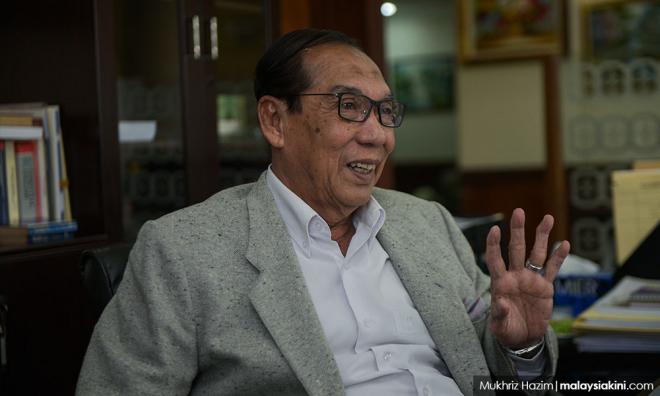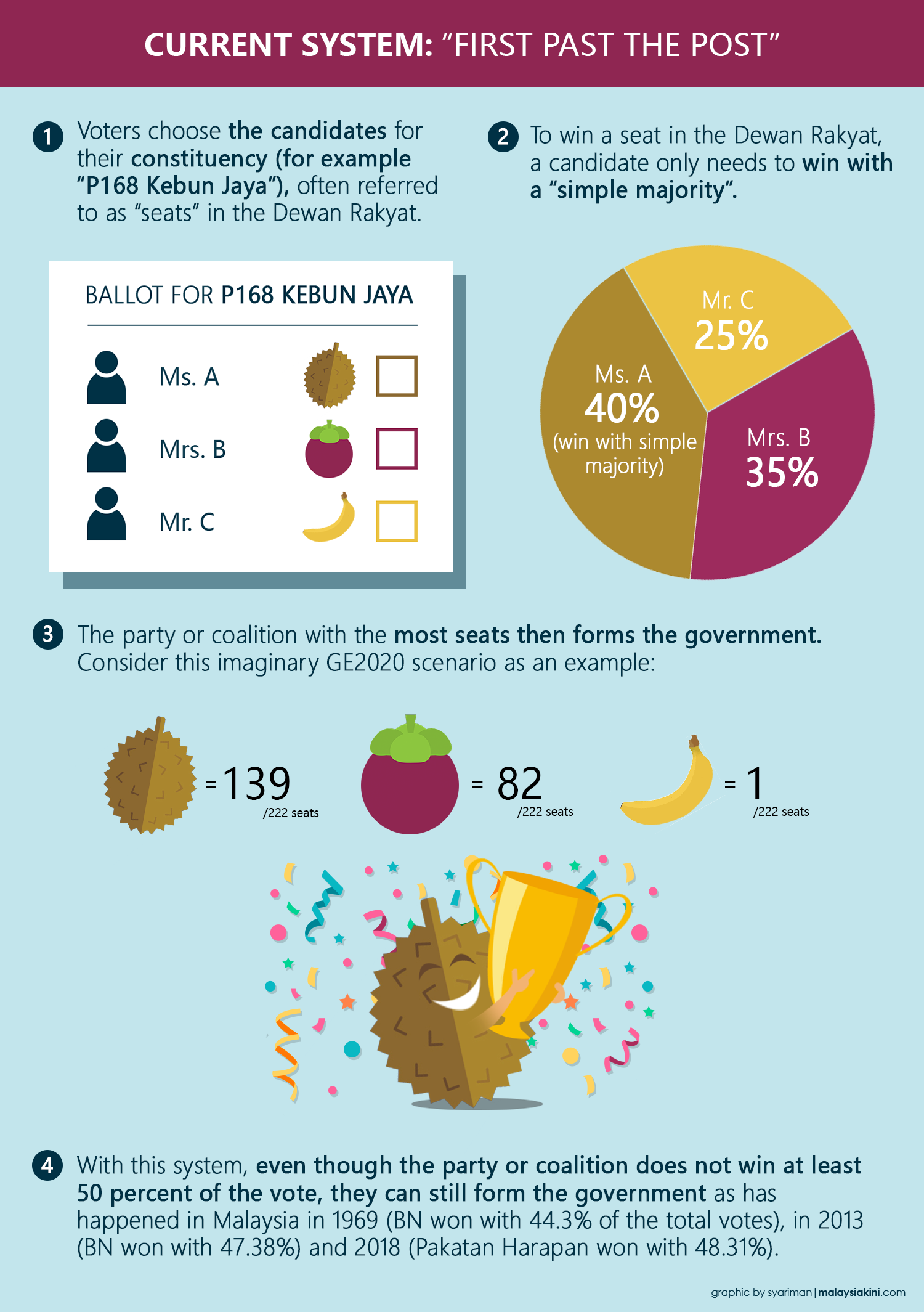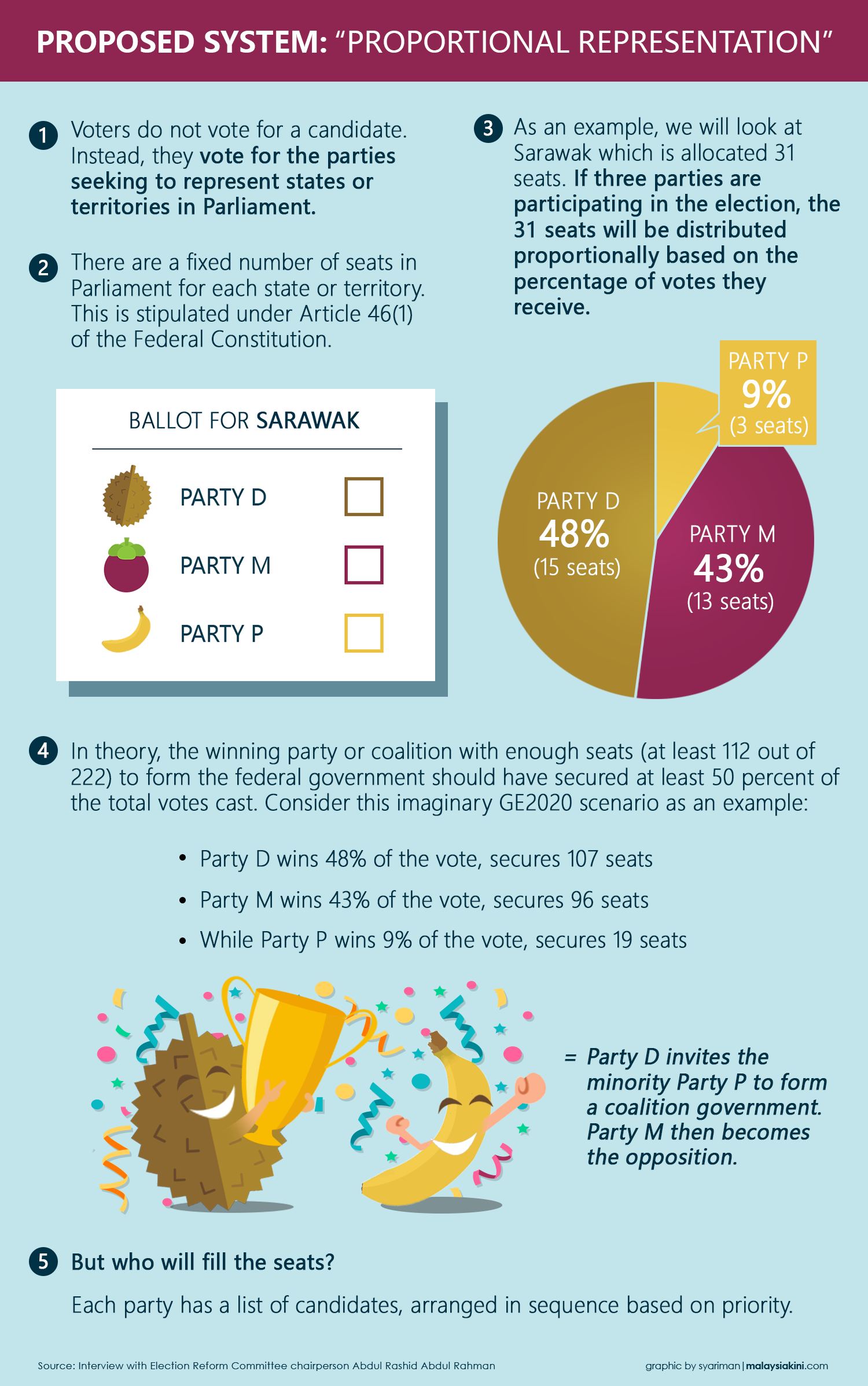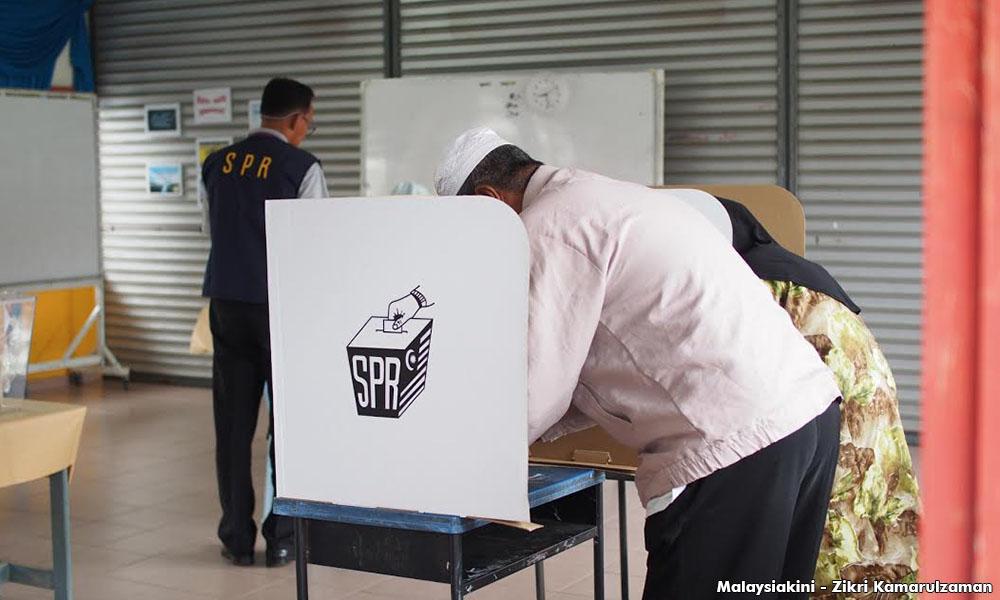
INTERVIEW | The Election Reform Committee (ERC) will be proposing to the government to replace the current "first-past-the-post" (FPTP) electoral system with a "proportional representation" (PR) system for parliamentary seats only.
ERC chairperson Abdul Rashid Abdul Rahman (photo) said this is because the PR system is fairer and more democratic.
It will also encourage political parties to do more to serve the rakyat as well as be more united, he added.
"After seeing what the advanced democracies all over the world do, we noticed that even though we normally vote for the candidate, but at the end of the day, you still talk about the party that runs the country, so we felt we should emulate what the advanced countries do and most of them have this system known as proportional system.
"We feel that this is the best the country can offer for the time being. Let's start somewhere first, not too complicated.
"If you say this is not fair, I think this is most fair. You form the government because you are popular, not because the system gives you the advantage to claim yourself popular when you are not," Abdul Rashid told Malaysiakini in an interview at his office in Putrajaya.

Under the proposed PR system for Parliament seats, Abdul Rashid said voters will no longer vote for candidates for parliamentary constituencies.
Instead, voters will vote for political parties that are trying to be representatives for states and territories in the Dewan Rakyat.
Each state and territory will have a fixed number of Parliament seats, which is stipulated under Article 46(1) of the Federal Constitution, he explained.
Parties will then be given a certain proportion of seats based on the percentage of votes they gained in the election.
For example, if three parties are vying for the 31 parliamentary seats in Sarawak, the seats will be distributed to the parties proportionally.
Meanwhile, the parties will come up with a party list of candidates, arranged in sequence by priority. These candidates will then fill up the seats the parties win.
Abdul Rashid also said the MPs will no longer be representing constituencies. Instead, the lawmakers will represent their respective states or territories.
To form a government, a party or a coalition will need to control at least half the seats in the Dewan Rakyat.
"(The PR system we are recommending) is probably slightly different from what other countries do for the same system, but we have peculiarities.
"We have Parliament seats allocated to the states in our Constitution. In most other countries, they do not have state (allocation for parliamentary seats).
"For this one, we need to respect the allocation given to every state in the Constitution," Abdul Rashid said.

He also stressed that the ERC recognises that Malaysia has three political units that are Peninsular Malaysia, Sabah and Sarawak and that they will not be lumped together under their recommendations.
"We must respect the Malaysian Agreement that has been agreed before in 1963 when they came in.
"They must have a certain number of elected representatives... we recognise the fact that even our Constitution talks about three units when we put up the recommendations for electoral constituencies," he said.
Under this PR system, Abdul Rashid said, local-based parties or minority parties will still stand a chance to win seats, as long as they were to reach a certain threshold of votes, for example, five percent of the votes.
"We will find smaller parties will also have their representation in Parliament, and we are at liberty to say, allocate seats for the Orang Asli," he said.
Abdul Rashid said this proposed PR system is superior over the current FPTP system as it will not have any wasted votes and it will not create a situation where a party which lost the popular vote can still gain enough seats to form the government.
"In the previous system, for example in the 13th general election, one party gained 48 percent of the votes but it got more than the required seats to form the government.
"Another party got more than 50 percent of the votes but was unable to form the government.
"So, in other words, the less popular one got installed (as government), while the popular one got left behind, which means votes secured by the popular one are wasted votes.
"We chose this (PR system) because it is not wasting the rakyat's votes. We want all votes to be considered, all votes to be turned into seats," he said.

Party behaviour may also change under this proposed system, he said, as parties will be incentivised to be multi-racial and more united.
They will also have to work harder to serve the rakyat on the ground in order to appeal to the majority, he said.
"I think if you want to survive as a party, if you want people to vote for your party and if your ambition is to form the government, you must have a coalition of parties that represent all the communities, not just one or two.
"Racial parties will lose out. They can get votes in certain areas, but the votes may not be enough to carry seats for them," he said.
There will also be no by-elections under this proposed system, which will result in the government being more stable, he said.
The PR system the ERC is proposing, which will be presented to Prime Minister Dr Mahathir Mohamad soon, will only affect the Parliament seats, Abdul Rashid said.
State seats, he said, will maintain the current FPTP system, where any candidate who gains a simple majority of votes in a constituency will win the seat and subsequently, any party which gains a simple majority in seats will win the state.
"We thought the need is still there for the FPTP system to be engaged in state seats because people are still going after their elected representatives for assistance.
"People need their elected representatives to be around for all kinds of assistance, so the winners will become the welfare officers.
"Part of the responsibility to the rakyat is welfare, so the welfare function is still needed. We are not touching that one," he said.
Educating the voters and raising awareness of this new proposed PR system is very important, Abdul Rashid said.
However, such efforts would need a budget and as such, the implementation would be up to the government, he added.
The ERC is ready to present its interim report to the prime minister and complete their task, he said.
"I am very anxious to end all this, but if we are asked to come back and do a proper implementation, then that is okay, we will do it," he said. - Mkini


No comments:
Post a Comment
Note: Only a member of this blog may post a comment.